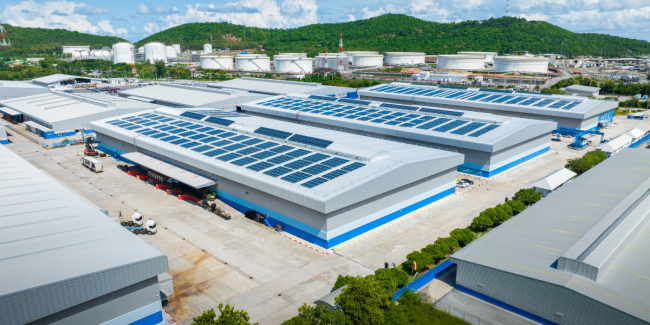
Sustainability in Inventory Control: How to Prioritize Eco-Friendly Practices
In a world increasingly focused on sustainable practices, businesses are recognizing the importance of incorporating eco-friendly measures into every aspect of their operations. Inventory control, a critical component of supply chain management, is no exception.
The Environmental Impact of Traditional Inventory Practices
Traditional inventory management often involves excessive paper usage, energy consumption, and transportation-related emissions. Additionally, overstocking or inadequate inventory levels can lead to unnecessary waste and contribute to environmental degradation.
Recognizing these challenges, Rebound Dynamics emphasizes the need to shift toward sustainable inventory practices. Below, we explain how our remote inventory control solutions can help you achieve your environmental and operational efficiency goals.
Reduced Travel and Emissions
Traditional inventory management often involves on-site visits to warehouses and storage facilities, contributing to carbon emissions and energy consumption. Automated inventory management minimizes the need for frequent travel, allowing teams to monitor and manage inventory from any location.
This reduction in travel aligns with sustainability goals by lowering the carbon footprint associated with transportation.
Paperless Operations
Remote inventory systems leverage digital platforms and cloud-based technologies, eliminating the need for extensive paperwork. Traditional inventory management processes often involve printing, documenting, and storing paper records, leading to increased deforestation and waste. Mobile inventory management promotes a paperless approach, reducing environmental impact and contributing to sustainable practices.
Energy Efficiency
Managing inventory remotely often involves using advanced technologies such as IoT devices, sensors, and cloud computing. These technologies are designed for energy efficiency, contributing to reduced energy consumption compared to traditional manual methods.

By embracing remote solutions, businesses can optimize energy usage and lower their overall environmental impact.
Optimized Resource Utilization
Cloud-based inventory management allows businesses to optimize resource utilization by leveraging real-time data analytics and forecasting. Accurate demand predictions lead to better inventory planning, preventing overstocking or stockouts. This optimization minimizes waste and ensures that resources are used efficiently, aligning with sustainability principles.
Efficient Supply Chain
Remote management systems contribute to the efficiency of the entire supply chain. Businesses can streamline their supply chain operations by providing real-time inventory visibility into stock levels, order statuses, and supplier relationships.
This efficiency reduces the need for rush orders, emergency shipments, and excess inventory, contributing to a more sustainable and cost-effective supply chain.
Flexible Work Environments
Remote inventory management allows teams to work from diverse locations, promoting flexible work environments. This flexibility reduces the need for extensive office spaces and associated resources. Businesses can embrace remote work, contributing to a reduction in energy consumption related to office infrastructure and supporting a more sustainable work culture.
Data-Driven Sustainability Strategies
Remote inventory systems provide businesses with comprehensive data on their operations. This data can be leveraged to develop and implement targeted sustainability strategies. By analyzing patterns and trends, organizations can identify areas for improvement, implement eco-friendly practices, and make informed decisions that align with their sustainability goals.
Additional Eco-Friendly Practices to Implement in Your Supply Chain
- Green Packaging
- Use sustainable and recyclable packaging materials.
- Optimize packaging design to reduce material waste.
- Efficient Transportation
- Consolidate shipments to minimize transportation emissions.
- Explore alternative transportation methods like electric or hybrid vehicles.
- Water Conservation
- Implement water-saving technologies in manufacturing processes.
- Evaluate and reduce water consumption across the supply chain.
- Renewable Energy Adoption
- Transition to renewable energy sources for manufacturing and operational needs.
- Invest in on-site renewable energy solutions like solar panels or solar-powered solutions for remote inventory management.

- Supplier Sustainability Assessments
- Conduct sustainability assessments for suppliers, considering their environmental practices.
- Collaborate with suppliers committed to eco-friendly manufacturing.
- Local Sourcing
- Prioritize local suppliers to reduce the carbon footprint associated with long-distance transportation.
- Support regional economies and reduce dependency on global supply chains.
- Waste Reduction
- Implement waste reduction programs to minimize landfill contributions.
- Explore opportunities for reusing or repurposing waste materials.
- Lifecycle Assessments
- Conduct lifecycle assessments of products to identify opportunities for improvement.
- Optimize processes based on environmental impact assessments.
- Energy-Efficient Warehousing
- Implement energy-efficient practices in warehouses, such as LED lighting and smart climate control systems.
- Invest in renewable energy sources for warehouse operations.
- Transparent Reporting
- Provide transparent reporting on environmental initiatives and progress.
- Communicate sustainability efforts to stakeholders, including customers and investors.
By incorporating these eco-friendly practices, businesses can contribute to a more sustainable and environmentally conscious supply chain. These initiatives not only benefit the planet but also align with growing consumer expectations for responsible and eco-friendly business practices.
A Greener Future with Rebound Dynamics
Prioritizing sustainability in inventory control is not just an ethical choice but a strategic one for businesses aiming for long-term success. Rebound Dynamics stands at the forefront of this movement, guiding businesses toward eco-friendly practices that not only benefit the planet but also contribute to operational efficiency and cost savings. By embracing sustainability in inventory control, organizations can pave the way for a greener, more responsible future.